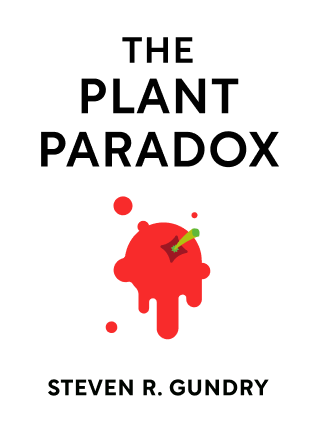

This article is an excerpt from the Shortform summary of "The Plant Paradox" by Steven R. Gundry. Shortform has the world's best summaries of books you should be reading.
Like this article? Sign up for a free trial here .
What are the lectin side effects that people experience? What does lectin do to the body?
Eating foods with lectins opens you up to many adverse effects. Lectins can make you feel sick and the impact compounds as you eat more.
Read on to see the lectin side effects that come with eating lectins you can’t digest properly.
What Does Lectin Do to the Body?
Lectins have a multifaceted approach to attack your system, resulting in lectin side effects.
Lectins are designed to mimic other proteins. This means your immune system can’t tell the difference between the foreign lectins and the body’s own natural proteins and consequently attacks its own proteins. Additionally, different proteins instruct cells to do different actions (e.g. store fat, or attack invading organisms) so mistaking the lectins for another protein can cause your body to follow the wrong instructions.
Second, lectins can bind to certain cell receptors to mimic a hormone or to block a hormone. Hormones are proteins that attach to docking ports on cell walls to instruct the cell on what to do; for example, insulin is a hormone that instructs cells to allow glucose to enter for fuel and store any extra glucose as fat. Hormones naturally leave the dock when they’re done, but lectins bind to these docks and sometimes never leave, meanwhile giving wrong instructions (e.g. chronically storing fat) or blocking the correct instructions. This communication disruption means more lectin side effects in the body.
Finally, they work on breaking through the mucosal wall that lines your intestines. Lectins are relatively large proteins (compared to the vitamins, minerals, fats, sugars, and simple proteins that your intestinal cells regularly absorb), and they have to try to squeeze through tight spaces between cells in the mucosal wall.
However, if your natural defenses are worn thin, the lectins can bind with certain cell receptors to create a chemical compound that opens spaces between the cells to allow the lectins (and other bacteria and toxins) to get through, causing leaky gut syndrome. Once lectins get through your intestinal wall, they can access your tissues, lymph nodes, glands, and bloodstream. There are a variety of lectin side effects as a result. As a foreign protein, your immune system naturally attacks them—and you’ll feel the effects via inflammation and other symptoms.
Pattern Matching Explains Lectin Side Effects
Pattern matching is a computer science term for seeking patterns in sequences; when you start typing search terms into Google, it looks for patterns and makes search suggestions.
Your body uses pattern matching to know when your immune system needs to attack a foreign invader to protect your health, but lectins cause unnecessary immune responses that lead to inflammation and disease.
Your immune system uses two main types of receptors to keep your body in good working order.
- Toll-like receptors (TLRs) determine whether any protein that enters the body is harmless or harmful. Each protein has something like a barcode, and the TLRs scan this barcode to identify what the protein is and whether the immune system needs to attack.
- G-protein coupled receptors (G-spotters) are the docking ports on cells (mentioned in chapter 1), which scan hormones, enzymes, and cytokines for instructions about what the cell is supposed to do.
However, since lectins are designed to hurt plant predators, they have barcodes that look similar to harmful barcodes, so the body begins attacking itself. Then, you experience lectin side effects.
Additionally, the confusion can compound and cause even bigger problems. What does lectin do to the body? This is the chain of events that can lead to an autoimmune disease:
- Lipopolysaccharides (LPSs) are fragments of bacteria that your body mistakes for full-strength bacteria, so your immune system responds with a full-fledged attack, causing inflammation.
- When your immune system detects lectins that look similar to the LPSs, it ups its attack, causing more inflammation. This means more lectin side effects.

———End of Preview———
Like what you just read? Read the rest of the world's best summary of Steven R. Gundry's "The Plant Paradox" at Shortform .
Here's what you'll find in our full The Plant Paradox summary :
- Why eating more vegetables isn't enough, and why some vegetables are toxic to your body
- The science behind lectins and how they tear apart your body, making you fat and sick
- The 6-week program to get your body back on healthy grack






